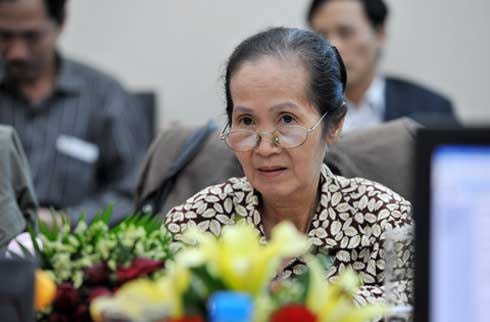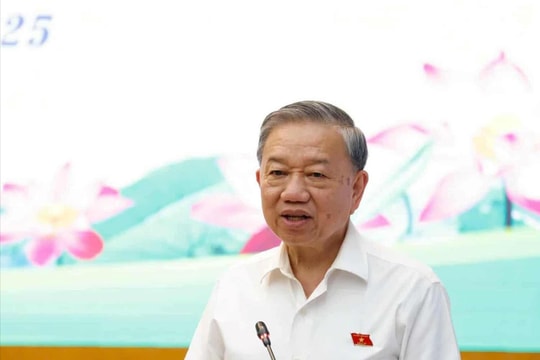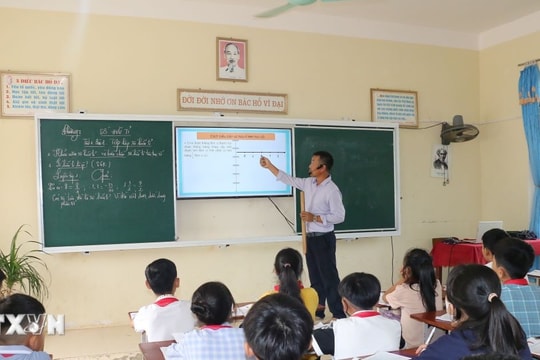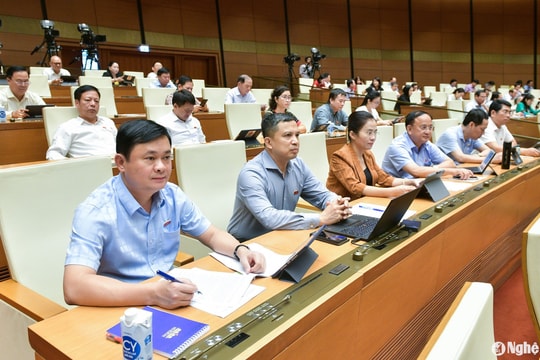Ms. Pham Chi Lan: Low-salary civil servants still live well, so there is a lack of motivation for reform.
According to Ms. Lan, corruption is widespread so even though civil servants have low salaries, they still live well, and there is no real motivation to reform salaries.
Economist Pham Chi Lan said that reforming wage and social insurance policies and preferential subsidies for meritorious people is a big, difficult, complicated and sensitive project. This reform aims to create momentum for socio-economic development, contribute to cleaning up and improving the efficiency of the state apparatus, and directly impact the lives of workers and the quality of public service. In the current context, reforming wage policies is an increasingly urgent issue.
- The salary reform project has been prepared for many years, but has not been implemented yet. What do you think is the reason?
- The problems with budget, regular expenditure and the inadequacies of the current salary system make it impossible to delay reforming the salary policy. Regular expenditure currently accounts for nearly 70% of budget expenditure, of which 47% is salary expenditure. Spending like that is still not enough to support civil servants with a satisfactory salary, I think it is necessary to review, if we really reform the apparatus, there will be better salaries, paying properly to those who are working productively and effectively.
However, the challenge remains, which is that the thinking about the role of the state, the relationship between the state, the market and society has not really changed. There are people who are still very conservative, still want the state to take over many jobs and do not believe in the market, do not believe in society.
The division and decentralization of functions and tasks among state agencies are still unreasonable and overlapping, resulting in a lack of transparency and accountability. Because of the lack of transparency, it is not known which steps are redundant and which steps are lacking to properly reorganize the apparatus, and it is not known who is doing well to deserve a higher salary.
In addition, bureaucracy and corruption are widespread and, if not punished for a long time, become great benefits that are not easy to give up. The system and habit of collective decision-making and collective work prolong the ineffectiveness and inefficiency of the apparatus, while at the same time covering up many shortcomings of the apparatus and civil servants, making the apparatus unaccountable.
The widespread corruption has made it so that despite low official salaries, civil servants still live well and have no real motivation to reform the salary system. I say honestly that those who want salary reform are usually highly productive, good workers who want reform so that they can receive more properly.
Finally, the way of recruiting, using, treating, promoting, and firing does not create pressure and motivation for reforming salary policy within the apparatus. To be honest, society and taxpayers are very frustrated but do not have the power and real voice to influence the system. Therefore, everything must come from within the apparatus itself with strong motivation for reform to be possible.
 |
Economist Pham Chi Lan. Photo: PV |
- What do you think about the opinion that because our country's economy is still difficult, we cannot reform wages?
- The more difficult the economy is, the more reform is needed. Why is it difficult? Because the operating system is poor. The whole society, businesses are so dynamic, there are so many investment capital sources but the country is not developing as expected, that is instability due to the operating system. Currently, the most inefficient sector is the state sector, public money, public investment, public spending, the banking system with state intervention.
It cannot be blamed on the lack of resources for wage reform. The current resources for wages are too large. All the figures given by the National Assembly clearly show this.
But because that salary is divided among a large apparatus, in the end, each person's income from salary is very small. Meanwhile, there is too much loss and waste in other regular expenses. Experts say that Vietnam's nominal salary is too low but the allowances are too much, so civil servants do not live on their salary, the allowances become the main part. I think it is necessary to salaryize all allowances to clarify how much income actually is and where the allowances come from.
- So, according to you, where should we start to implement salary reform?
- The biggest problem is the political determination of the whole system. Leaders are highly determined but implementation is still difficult because of internal resistance. Talented people want to reform and change, but the number of people who go to work with an umbrella in the morning and return home with an umbrella in the evening, not wanting to reform, as Prime Minister Nguyen Xuan Phuc said, is 30%.
Our recruitment method of "first money, second descendants, third relationships" does not allow us to have talented, sincere people to work in the government. They go there for other reasons, they invest to buy a position in the government and then somehow harass or have some channel to recover their investment. That force not only does not work but also sabotages. With such a large force, it is impossible to reform because before doing anything, they are afraid of difficulties.
- You said that it is time to immediately implement salary reform because of its urgent need. If we continue to delay, what will be the consequences, madam?
- The salary reform project was presented at the 11th Central Conference but has not been implemented yet, we have wasted 5 years. Therefore, I really hope that we can implement it from now until 2020 to have a ready apparatus to enter the 3rd decade of this century, otherwise we will be too late in development.
No matter how enthusiastically we integrate into the world, or how many agreements we sign, we will not be able to implement them with a stagnant system like this. Businesses will not be able to develop, and the entrepreneurial spirit will not be able to thrive.
No matter how good the government’s policies are, they will not be realized if the implementers want to benefit themselves first and not the society. If from now until 2020 we still struggle with this kind of apparatus, we will not be able to move the country forward and this apparatus itself is guilty of the country’s future.
On the morning of December 13, the Workshop on Salary Policy Reform - International and Vietnamese Experience was held under the chairmanship of Deputy Prime Minister Vuong Dinh Hue - Head of the Central Steering Committee on Salary Policy Reform, Social Insurance and Incentives for People with Merits. Based on the comments of experts, managers and delegates at the workshop, the drafting committee and the editorial team researched, absorbed and completed the Salary Reform Project for cadres, civil servants, public employees, armed forces and workers in enterprises. The project will be presented to the 7th Central Conference of the 12th term in May 2018. |
| RELATED NEWS |
|---|




.jpg)



